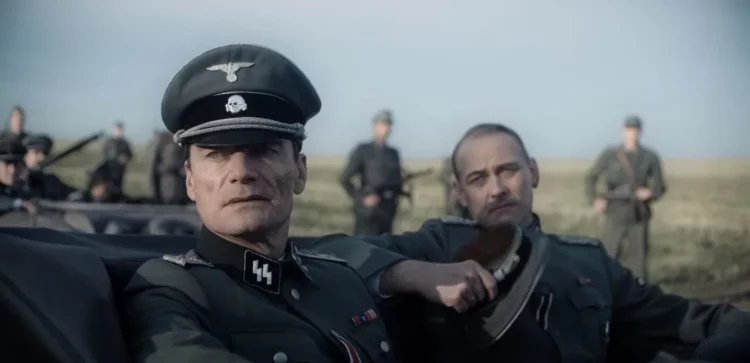Jaguar, a six-part Netflix series set in Madrid in 1962, unfolds against the backdrop of World War II, Nazi concentration camps, and German war criminals enjoying the fruits of immunity in postwar Spain.
A small band of Spaniards whose lives were upended by Nazi oppression plot to kidnap and bring to justice Aribert Heim, a German doctor who conducted gruesome medical experiments in the Mauthausen camp in Austria.
Before they can lay their hands on him, they must win the trust of Otto Bachmann, a former German army commander who knows Heim and has helped Nazis escape from Europe.
This fast-moving, action-packed drama is based on real events.
Ten thousand anti-fascist Spaniards who fought for the losing Republican side during the Spanish Civil War fled to France after the Nationalist victory in 1939. The collaborationist French Vichy regime handed over many of them to Germany following France’s defeat 1940.
Considered enemies of Nazism, they were sent primarily to the Mauthausen and Dachau concentration camps, where they endured cruelty and hardship as slave laborers. Nearly 5,000 perished.
The Nazi hunters in Jaguar are survivors or the sons and daughters of murdered inmates. The chief characters are Isabel (Blanca Suarez), whose father was killed when he shielded her from Bachmann’s wrath, and Lucena (Ivan Marcos), a survivor who seeks vengeance.

Working as a waitress in a German restaurant in Madrid, Isabel plots to kill Bachmann (Stefan Weinert), who dines there with his Nazi friends. She links up with Lucena and several of his followers.
Lucena hatches a plan to befriend Bachmann so they can abduct Heim. On Lucena’s instructions, Isabel forms an acquaintanceship with Bachmann’s flighty wife, Ilse. Lucena, meanwhile, reaches out to Bachmann, a suspicious and nasty man with a deep scar on his craggy face.
As Isabel and Lucena win over Bachmann, they’re find themselves in the unpleasant company of dedicated Nazis who fondly remember the Third Reich. At one point, they attend a dinner honoring the Spanish veterans of the Blue Division, which fought on Germany’s side from 1941 to 1943.
Having learned that Heim lives in the coastal town of Almeira, the Nazi hunters go after him. Explosions, fist fights and shootouts occur as they match wits with Bachmann, Heim and their Spanish allies.

Bachmann is powerful enough to recruit a Spanish army general and some of his soldiers to his cause. Bachmann’s outsize influence is a subtle reminder that Francisco Franco, Spain’s supreme leader, welcomed thousands of Nazi war criminals to Spain after the war.
The series, which takes its name from Aztec warriors who compared themselves to jaguars, is reasonably plausible. But at times it lurches into lurid comic book territory and becomes cartoonish or theatrical. The cast, however, is first-rate, and Jaguar is sufficiently entertaining.
